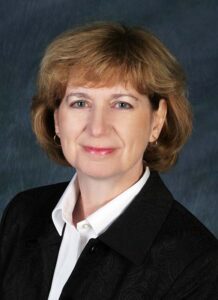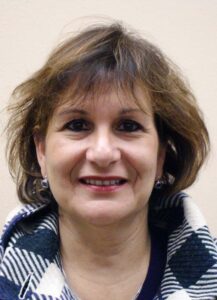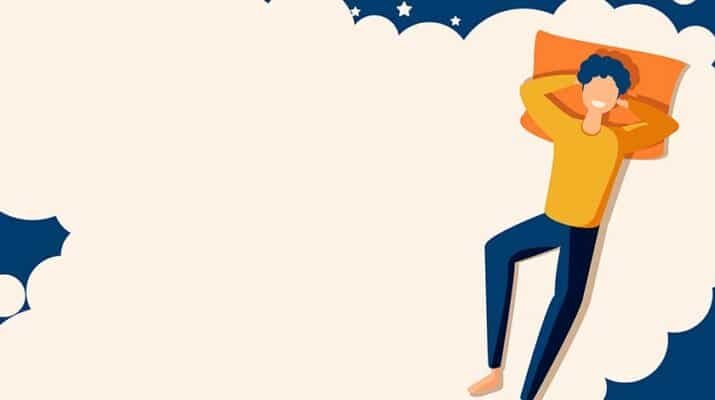A UB-Roswell Park study for cancer survivors with insomnia aims to help everyone sleep better
By Jana Eisenberg
Most of us know that exercise, nourishing food and enough sleep are important for good health. But, what about when you can’t sleep well?
According to recent statistics from the American Sleep Association, more than 70 million American adults have a sleep disorder; insomnia is the most common form. Its main characteristics are difficulty falling or staying asleep, as well as waking up too early. Aside from being tired, poor sleep can have devastating effects on health, function and well-being.

Insomnia is even more prevalent in cancer survivors.
According to recent National Cancer Institute statistics, there are an estimated 16.9 million cancer survivors in the United States; that number is projected to increase to 22.2 million by 2030. And an estimated 40% of them report sleep disturbances, sometimes even years after completing treatment. Little research exists on strategies to effectively reduce insomnia in cancer survivors.
That is part of the reason why researchers at the University at Buffalo School of Nursing, in partnership with Roswell Park Comprehensive Cancer Center, are conducting an insomnia study for this group. The study is actively recruiting eligible participants—survivors of colorectal, prostate or lung cancer in the Western New York area who have trouble sleeping.

Lead investigator Grace Dean, a professor at UB, and Donna Tyrpak, a study coordinator, posit that with minimal education, anyone with insomnia can learn how to sleep better. Notably, this nonpharmacological intervention, or treatment does not include any drugs or medication.
Rather, the study is behavior-based, testing two different educational programs. One is a brief behavioral treatment for insomnia (BBTI) through which participants are taught and encouraged to adapt healthier sleep behaviors. The second, for comparison, is a healthy eating program.
Participants are randomized—that is, selected randomly—into one of the two groups. Both programs may be beneficial to improve sleep; the research team is comparing to see which one is more effective.
“In the approximately one-hour training session, a nurse-interventionalist talks with participants about what helps and what hurts in terms of getting better sleep,” said Tyrpak.
“There are four steps to the BBTI: One, don’t go to bed unless you are sleepy. Two, don’t stay in bed unless you are asleep. Three, wake up every day at the same time. And four, reduce your time in bed,” said Dean, a former oncology nurse at Penn Medicine Center of Sleep and Circadian Respiratory Neurobiology in Philadelphia. “The last one can seem counter-intuitive, but lying in bed waiting or trying to fall asleep can create an unhealthy relationship with sleep.”
The healthy eating group also gets a one-hour training and a four-step process. “Our graduate students designed an easy-to-follow program that we could compare to the BBTI group,” she added. “Food—what we eat and drink, and when—can affect your sleep. So we teach participants ‘PASS.’ That’s (1) pay attention, (2) advanced planning, (3) small steps, and (4) substitute healthier foods. We track whether people follow the steps, and they become more mindful if they’re, for example, having caffeine or chocolate too close to bedtime, or if they are feeling too full in the evening.”
The five-year, $2.2 million study, officially titled “Efficacy of Nurse-Delivered Brief Behavioral Treatment to Self-Manage Insomnia in Cancer Survivors,” is funded by the National Institutes of Health. Participants can receive the education in person or via Zoom; study participation also involves a year-long follow-up, where participants communicate with the study team about their sleep and other health factors.
“Our goal is to reach people that we can help; that’s why we are offering the option to participate virtually, with no in-person visits, if that’s a person’s preference,” said Dean. “We want to make it easy for people who are seeking help with sleep problems.”
Studying the technique in cancer patients was a sensible place to start, said Tyrpak. “About half of the cancer survivors we’re working with had sleep problems before their diagnosis,” she said. “But you don’t have to have cancer to have this technique work.”
If you are interested in seeing if you may be eligible, contact Karen Larkin at 716-829-3405 or klarkin2@buffalo.edu

